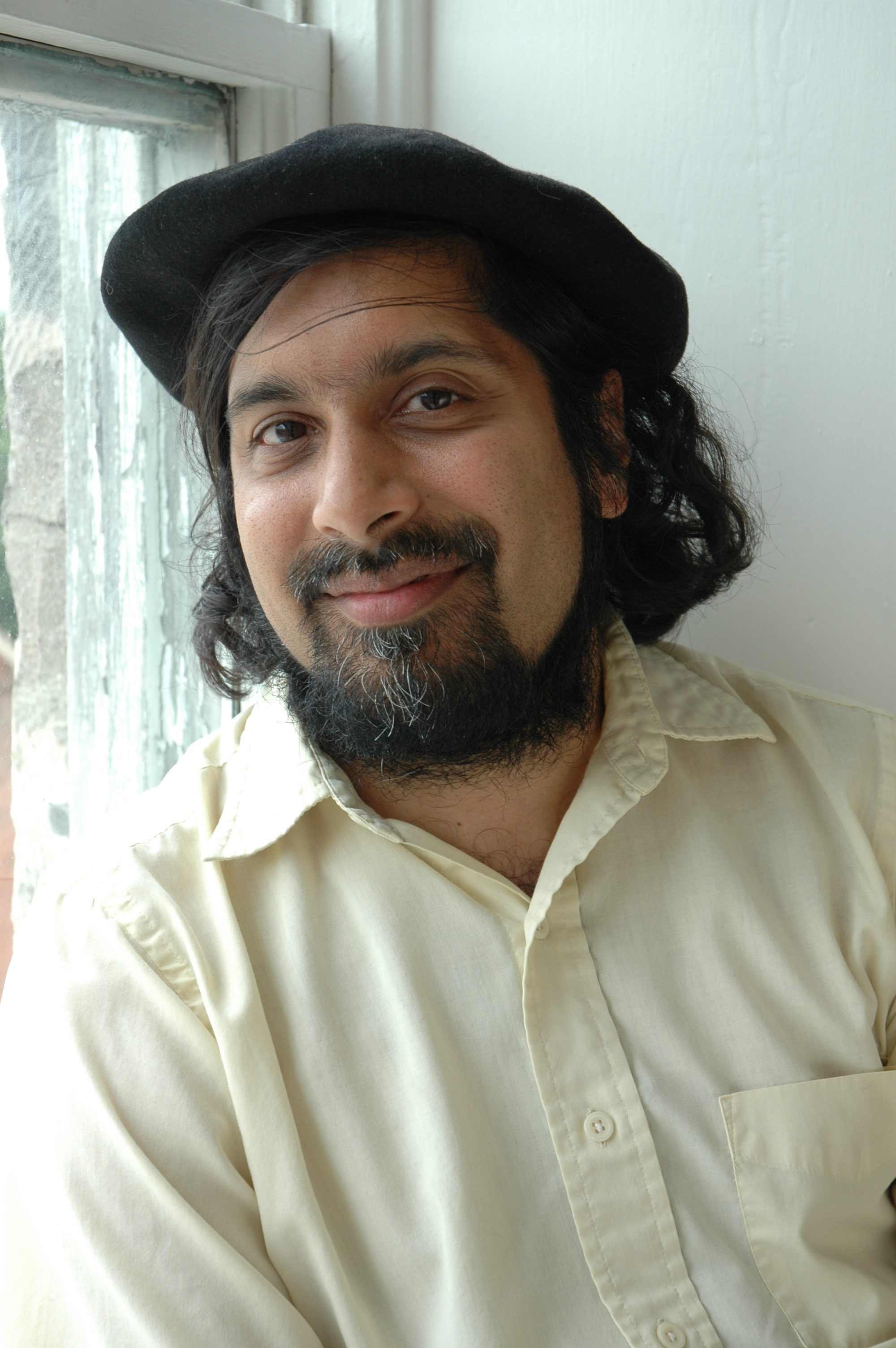He’s the creative and academic force proving that improvised music transforms lives.
Ajay Heble (BA ’84 Innis, PhD ’90) is the founding director of the International Institute for Critical Studies in Improvisation (IICSI), and an English professor at the University of Guelph. He was the project director for Improvisation, Community, and Social Practice, a ground-breaking research initiative, and the author or editor of several books. A musician who is part of an improvising quartet, the Vertical Squirrels, Ajay was also the founding artistic director of the award-winning Guelph Jazz Festival and Colloquium.
 You are a global pioneer in a field of study that, on the surface, would seem to defy scholarly research. You’re also a professor, author, and musician. What fuels your creative energy?
You are a global pioneer in a field of study that, on the surface, would seem to defy scholarly research. You’re also a professor, author, and musician. What fuels your creative energy?
I draw tremendous inspiration from the amazing people with whom I’ve had the opportunity to work: the fantastic artists I’ve been able to program at the Guelph Jazz Festival; the colleagues with whom I’ve been able to collaborate; my students from whom I continue to learn a great deal; and, of course, my family, without whom my lifework would not have been thinkable. I’m also fueled by hope: hope that a better world is possible, and that the arts can play a vital role in building sustainable communities, promoting social cooperation, and adapting to unprecedented change.
Through the IICSI you are studying ways that musical improvisation can be a tool for cultural, political, and social change. Can you tell us more?
There is a long and illustrious history, especially in the context of African American creative practice, that links improvised music with broader struggles for human rights, social justice, and community formation. I believe that this history speaks very powerfully to how musicians from within aggrieved communities have sought to cultivate resources for hope, sometimes out of seemingly hopeless situations.
In The Fierce Urgency of Now: Improvisation, Rights, and the Ethics of Cocreation, a book I’ve co-authored with Daniel Fischlin and George Lipsitz, we suggest that improvisation, in its most fully realized forms, involves the creation and development of new, unexpected, and productive co-creative relations among people. It teaches us to make “a way” out of “no way” by cultivating the capacity to discern hidden elements of possibility, potential, hope, and promise, sometimes in even the most discouraging circumstances.
Working without a written score or script, improvisers can work together to envision and enact something new, to enrich their experience in the world by acting upon it and changing it, in the process creating things that would not have otherwise come into existence. More than ever, it seems to me, the participatory and civic virtues of engagement, dialogue, respect, and community-building inculcated through improvisatory practices have taken on a particular urgency in the troubled times in which we currently live.
Can you give a real-world example of how your research is building and changing communities?
For over a decade, our research team has partnered with KidsAbility Centre for Child Development to bring world-class improvising musicians into creative collaboration with children and youth with special needs. The musician-facilitators lead workshops that help to develop the youths’ musical skills, confidence, and repertoires, and the group works together to stage a public performance during the Guelph Jazz Festival.
Ongoing research by members of our team has explored a range of topics including the short- and long-term impacts of improvised arts participation; pedagogical approaches to teaching improvised music in community settings; the therapeutic role of improvised creative practices; and the impact of improvisation programming on community cohesion.
See, for example, this “Stories of Impact” video. We’ve partnered with organizations across Canada to offer similar workshops with patients at mental health/addiction treatment facilities and with residents of some of Canada’s poorest neighbourhoods. We continue to see first-hand through this work how improvisation enables new models of cooperation, adaptation, and listening within at-risk populations, and how it fosters vibrant, cohesive, resilient communities, while increasing self-esteem, self-confidence, leadership, and social skills.
(Photo of Ajay Heble, above, by Trina Koster)